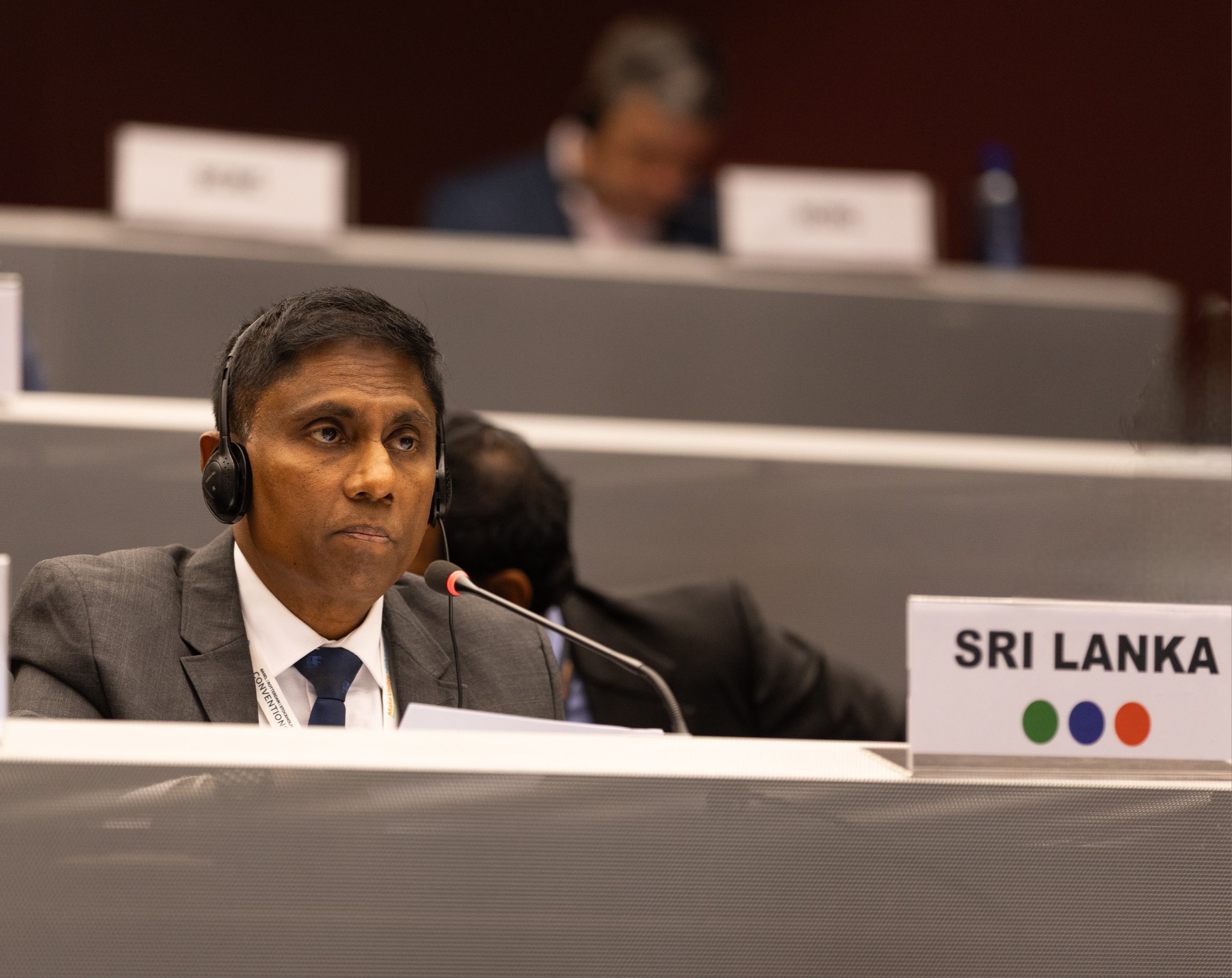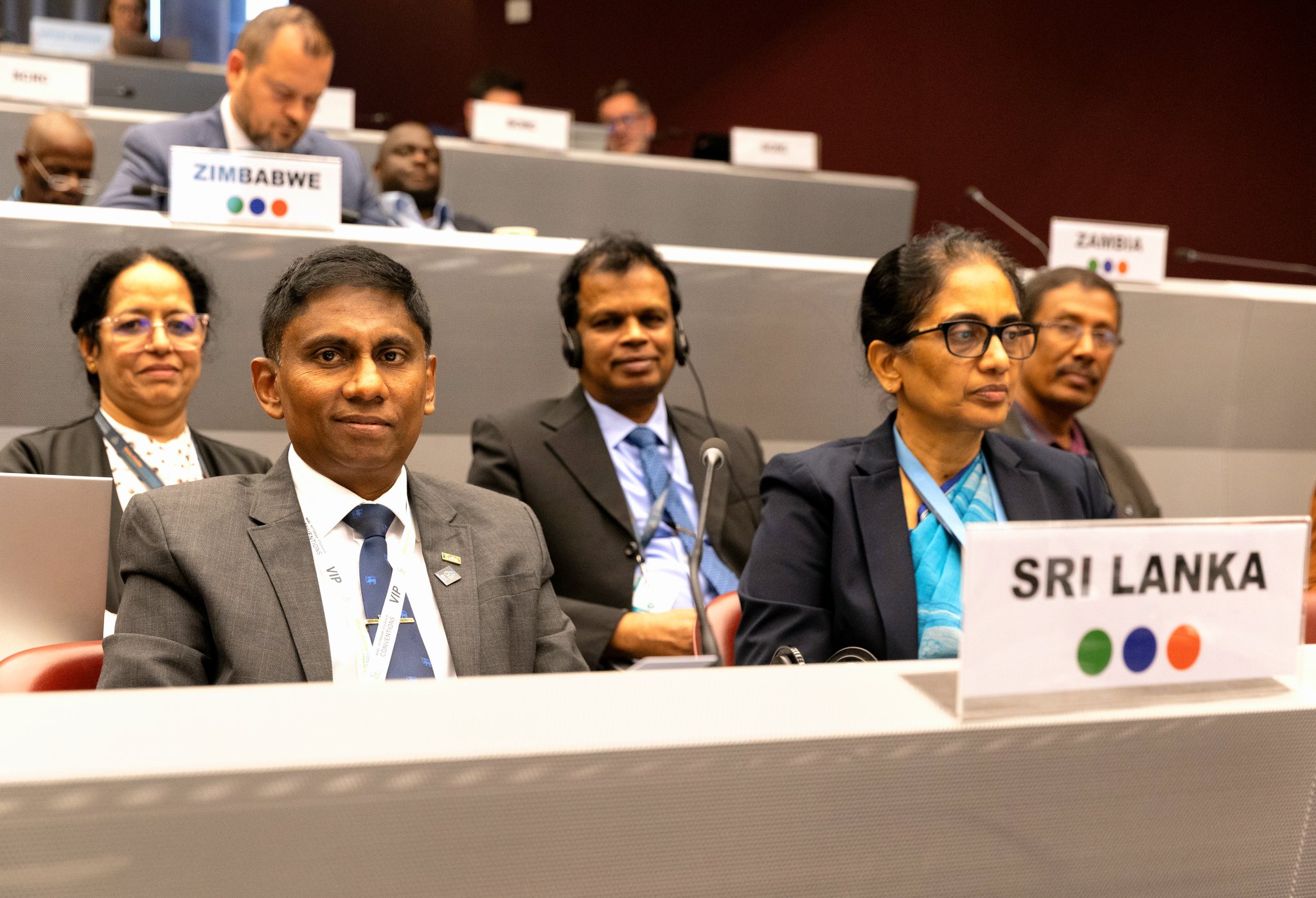

Honorable President, Excellencies, Distinguished Delegates,
Sri Lanka reaffirms its strong commitment to the Basel, Rotterdam, and Stockholm Conventions, recognizing their vital role in supporting our development, addressing climate change under the Paris Agreement, and conserving biodiversity. These Conventions are well integrated into our national policies and action plans, ensuring environmentally sound management of hazardous chemicals and waste.
To bridge the gap between policy and practice, Sri Lanka has strengthened regulatory mechanisms under the National Environmental Act, enhanced institutional capacity, and built successful public-private partnerships — especially in waste management. Coordination across the Basel, Rotterdam, Stockholm (BRS) and Minamata Conventions is ensured through a national Cabinet-appointed committee, which now also looks after plastic waste management.
E-waste remains a key challenge. Although Sri Lanka applies the Basel Convention’s Prior Informed Consent procedure, the lack of comprehensive legal frameworks, limited dismantling infrastructure, and low public awareness continue to hinder progress.
On pesticide management, Sri Lanka’s achievements have been globally recognized. Since enacting the Control of Pesticides Act in 1980, the country has banned or restricted 55 pesticides, including all those listed under the Conventions. These measures led to a 70% reduction in suicide rates saving over 93,000 lives without affecting agricultural productivity. This earned Sri Lanka the Global Future Policy Award in 2021.
Looking ahead, we are committed to eliminating all severe pesticide-related health and environmental impacts by 2035. Our new National Pesticide Risk Reduction Strategy (2025–2030) will align with global targets on Highly Hazardous Pesticides, ensuring sustainable agriculture and biodiversity protection.
Our National Chemicals Management Policy covers the full life cycle of toxic substances, including Persistent Organic Pollutants, Polybutylene Terephthalate, and endocrine disruptors. Imports of hazardous chemicals are regulated to ensure safety and compliance with environmental standards.
Sri Lanka recognizes the complexity of balancing multiple international obligations. For instance, phasing out ozone-depleting substances under the Montreal Protocol supports climate goals but generates hazardous waste: a challenge we address through integrated policy planning and sustainable technologies.
We are committed to empowering communities, especially informal waste workers, through public awareness and capacity-building efforts.
In conclusion, Sri Lanka stands ready to strengthen the implementation of the BRS Conventions and urges the international community to enhance technical and financial support to help developing nations achieve their environmental goals.
Photo Credit: BRS Conventions/Kiara Worth
